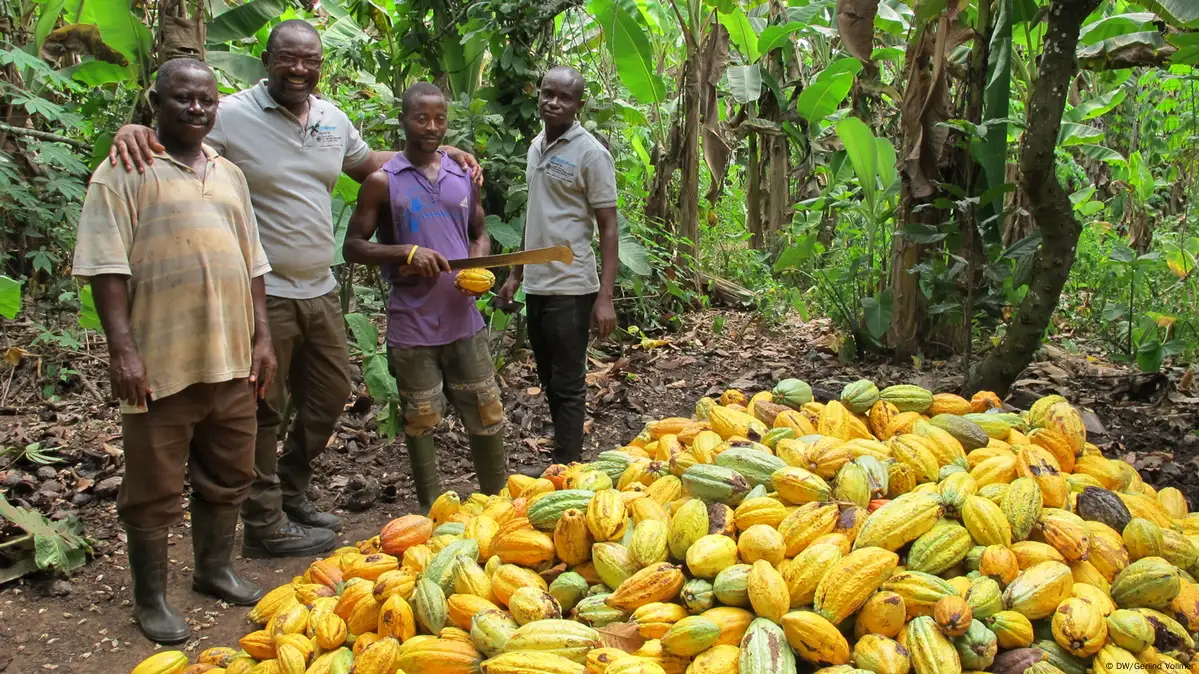Agriculture is the backbone of Ghana’s economy, but traditional farming methods often deplete soil nutrients, reduce productivity, and harm the environment. Sustainable agriculture offers a way forward by ensuring long-term soil health, better yields, and increased farmer profits.
Key Sustainable Agriculture Practices
1. Soil Health Management
Healthy soil leads to healthier crops. Sustainable soil management includes:
- Soil Testing: Understanding soil nutrient levels helps in applying the right fertilisers. Demeter Ghana Limited provides professional soil testing services to help farmers make informed decisions.
- Soil Conditioning: Products like Calciprill (by OMYA) help balance soil pH, improving nutrient absorption and root growth.
- Organic Matter Enrichment: Adding compost or manure improves soil structure and fertility over time.

2. Efficient Fertiliser Use
Applying fertilisers correctly boosts crop productivity while reducing waste. Farmers should:
- Use slow-release fertilisers like Asaase Hene (Polysulphate by ICL) to provide essential nutrients over time.
- Follow recommended application rates and timing to prevent nutrient runoff.
- Combine organic and inorganic fertilisers for better soil balance.
Recommended Image: Before-and-after images of crops using sustainable fertiliser practices.
3. Integrated Pest and Disease Management
Reducing pesticide use protects beneficial insects and improves crop resilience. Key strategies include:
- Biological Controls: Using natural predators to manage pests.
- Crop Rotation & Intercropping: Breaking pest cycles and improving soil diversity.
- Targeted Pesticide Application: Applying only when necessary and using eco-friendly solutions.
4. Water Conservation Techniques
Efficient water use is essential for sustainable farming. Farmers can:
- Implement drip irrigation systems to minimise water loss.
- Use mulching to retain soil moisture and prevent evaporation.
- Harvest rainwater for irrigation, reducing dependence on unreliable rainfall.

5. Climate-Resilient Farming
With unpredictable weather patterns, farmers must adapt by:
- Growing drought-resistant crop varieties.
- Practicing agroforestry, where trees provide shade, prevent soil erosion, and improve biodiversity.
- Using cover crops to protect soil from erosion and improve organic matter.
Benefits of Sustainable Agriculture
Increased Yields and Profitability
- Healthier soil leads to higher crop productivity.
- Reduced input costs by minimising fertiliser and pesticide waste.
- Higher-quality produce fetches better market prices.
Environmental Protection
- Less chemical runoff means cleaner water sources.
- Improved soil health prevents land degradation.
- Increased biodiversity supports pollinators and beneficial insects.
Long-Term Farm Viability
- Preserving soil fertility ensures continuous farm productivity.
- Climate-smart practices help farmers withstand droughts and floods.
- Stronger soil structure reduces the risk of erosion.
How Demeter Ghana Limited Supports Sustainable Farming
We provide the tools and expertise to help farmers transition to sustainable agriculture. Our products and services include:
- Soil testing and analysis for precise nutrient application.
- Eco-friendly fertilisers like Asaase Hene and Calciprill to improve soil health.
- Agronomic training and field demonstrations to help farmers adopt best practices.
- Partnerships with leading agricultural brands to ensure high-quality inputs.

Sustainable agriculture is not just an option—it is a necessity for Ghana’s farming future. Start making changes today with the right products and knowledge.
Stay informed about modern farming practices. Follow Demeter Ghana Limited on LinkedIn, Instagram, and Facebook for weekly updates!





